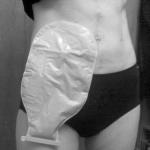Two elderly women were comparing notes about the food they had while vacationing in the Catskills.
Other Science News
I am a scientist. I even have the credentials to prove it. There is a PhD degree in microbiology hanging on my wall and a few peer-reviewed publications to my name.
Scientism uses the cloak of quantity to explain and describe qualities, in particular qualities that lose their true meaning when reduced to a quantity.
Inclusivity for those with chronic disease or differing abilities is gaining momentum as a fashion trend. And it is about time, for all of the innumerable obvious reasons.
Even with the advent of the antibiotic era, infectious diseases are a global health concern.
The case of Caster Semenya is as fascinating as it is multi-faceted. And while the debate can be endless due to the multitude of factors, the position one ends up taking really pivots on just a single point: how gender is defined.
How to best help those with chronic illness remains a pressing concern as we live longer and “acquire” more medical diseases.
One of my best friends recently commented that it's disturbing how many Nazis, communists, and terrorists he's friends with on Facebook.
Geopolitical analyst George Friedman wrote in his book The Next 100 Years that cultures go through three phases: barbarism, c
Many of us will recognize Daniel Gilbert as a retirement fund spokesman, helping us see just how long our retirement funds will last with dominos, ribbons and sticky notes.












